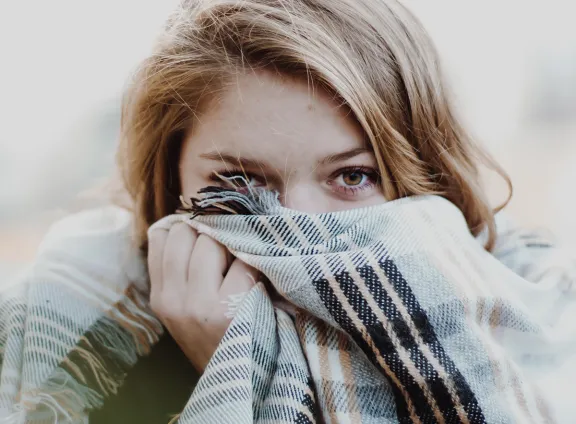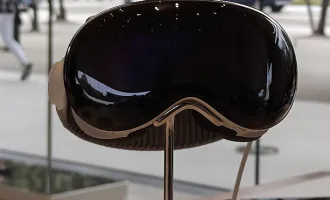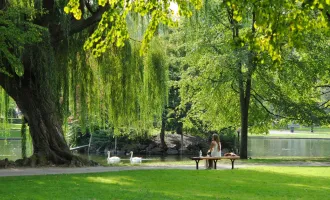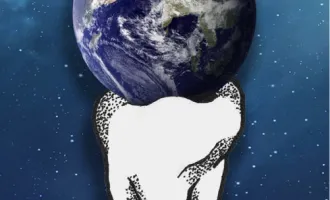
Skating By
It’s my first year of grad school. Because of the pandemic, all of our classes have been online, so the first time that I actually met my professors was at an end of quarter breakfast hour put on by a few of my classmates.
It was drizzling that morning, and it was cold because it was November, but most of us showed up to the quad anyways.
Individually wrapped pastries sat out on a bench. I grabbed a morning bun and tried to find somewhere to stand so that I could lower my mask and shovel the flaky, expensive thing into my mouth in a socially responsible way.
To my left, two professors were having an animated (albeit distanced) conversation about the university’s healthcare plan.
I recognized one as the man who gave zoom lectures while walking on his treadmill. The other, a chemist, was much shorter than I’d imagined. I noticed a streak of grey running through her hair.
As I lowered my mask to insert a piece of morning bun, I locked eyes with a biophysics professor who was standing across the quad from me. I’d talked with her earlier that week about working in her lab.
Did she recognize me? She looked away quickly and so did I, out of politeness, but I stole another glance at her after a few seconds.
To my surprise, she was also looking at me again. Embarrassed, we both dropped our gaze. It was like covering your face with your hands during a scary movie, then peeking through your fingers.
She gave me a small wave, a very casual downward motion with her arm still at her side. She wasn’t looking at me anymore, because someone had started talking to her, but I could tell that the wave was for me.
I was going to walk over to introduce myself, but I noticed that another professor was circling me, traversing the circumference of my six-foot bubble in an attempt to make eye contact.
“Hi, Tetrad?” he asked. That was the name of my program.
“Yes,” I said. “Hi, I’m Camille.”
“Ah, Camille,” he said, nodding. “Sorry, it’s just…” he motioned to his mask.
“No problem,” I said, smiling, which I realized that he couldn’t see. I laughed to let him know that I was smiling.
“So, how’s your first quarter going?”
“Oh, it’s okay,” I said. This was an objectively bad question, but he was trying. I could tell that he was nervous from the way that he kept flicking his eyes around the courtyard and shifting his feet, rocking back on his heels.
This is affecting him, too, I thought. I am having an effect.
When he spoke, his voice had a slight southern drawl, and I recognized it immediately. Of course I did, I’d watched his lectures.
But now it was a voice and a face piled on top of so many new details, this is the way he holds his coffee cup, and this is his hair color, and this is how he nods while he’s listening.
He was right there with me, familiar and mysterious, and it was much more intense than meeting a stranger for the first time.
One of the few classmates who I knew came over to us and introduced himself to the professor. “Hi, I’m Trevor! I don’t think we’ve met!”
“Oh, I’m X,” the professor said.
Trevor’s eyes widened. “Oh of course, X!” he said. “I didn’t realize you were so tall!”
The three of us chatted for a few minutes, and when X left to get more coffee, Trevor turned to me and hissed (from six feet away, so it was quite a loud hiss),
“I can’t believe I didn’t recognize X! Are you kidding me?”
“He doesn’t care,” I laughed, “he doesn’t know us either.”
“Yeah, but it’s X” he groaned.
“This is crazy,” I said. “Seeing the professors, and everything.”
“I know,” he said. “It’s so much stimulation.”
He said something else, too, and I’m sure I responded, but neither of us were looking at each other or paying any attention to our conversation, because too many other things were happening around us.
Just to our right, one of my classmates was talking to a professor while facing half away from him. She used her hands while she talked, and after she finished, she laughed nervously to fill the silence.
Will I remember these professors more than others because of the pandemic? Will we have a special bond?
Everyone says that trauma brings people together, but I’m not so sure. Maybe it will align us in a narrow way on a certain subject, but the kinship might stop there.
It’s really the relation that brings people together, not the incident itself, because it doesn’t mean much to know that your professors went through a pandemic with you if you never get to talk to them about it.
Last week, I called an old friend from high school, someone who I once knew like a sister.
When she asked me what was new, I said, “I’m in grad school now,” and I could tell that she had no idea what that sentence meant.
How does it feel to be in grad school?
I could’ve told her that the hallways in my building are empty, and the carpet is tweed, and I like to run my hand along the glossy wood banisters.
I could’ve told her about the hum of the freezers, and the fluorescent lights, and climbing four flights of stairs, breathing hot, moist in my mask.
The floors of my lab are grey linoleum. There are dead leaves on the quad, and the wind tunnels in between the buildings.
The big LED screen on the Chase Center looms at the edge of campus. It has humongous LED basketball players with beads of sweat flying off their heads, and their mouths are open in concentration as they dribble towards you, looking through you, above you.
Sometimes I turn around to see if there’s a giant net behind me in the sky. There’s never a net, but sometimes there’s a plane overhead cutting a nice white scar that blurs out over time.
When I see it making that line, I imagine an invisible hand dragging chalk across a chalkboard, and I get shivers because I hear the sound.
If I’d said all that to my professor when he asked me how’s your first quarter going, maybe the details could’ve brought us together, even though they weren’t particularly traumatic details. They were just relatable, emotional, and the point is that it’s not only suffering that demands presence.
The problem is that it takes a real conversationalist to pull those things out of people.
I want to start asking those types of questions more often, what’s a memory that you thought about today?
I think it’s a good way to fill in the blank of where a person was before they were in the quad at coffee hour.
That being said, I also like talking about the news or TV shows, which have nothing explicitly to do with where I once was. Maybe that’s easier-it’s certainly less intense.
It draws people together in an indirect sort of way, like when I say I love the queen’s gambit, what I’m really saying is I love the queen’s gambit because I’m also addicted to the feeling of winning and I also feel lonely and I’m also a little unstable.
I can share myself while still being safe, because I don’t have to say it about me, I can just say it about Beth Harmon and wait to see where the other person meets me.
Talking about science is similar.
Scientific problems are all about relating experiments to other experiments instead of feelings to other feelings, and it’s cleaner and safer to talk science because it’s abstract.
It’s amazing to find yourself in a situation where the people around you care about the same problem that you’ve been thinking about, and they also have good thoughts on it, and you respect their perspective.
For me, talking like that is very emotional. Everyone’s there in the problem together, so any success is amplified, any failure diffused.
My first scientific mentor and I had almost nothing in common outside of the lab.
He’s 6’1 and quiet and thin and was practically nocturnal. I’m 5’6 and sporty and loud and I loved attention and telling stories and laughing (loudly) and bothering him with would-you-rather questions when I was bored.
When he was bored, he watched Youtube videos about science on his phone. While he was extremely organized, I took horrible notes and didn’t pay attention to labeling my tubes.
I think we made a good team because working was addicting for both of us-we routinely fought about who got to image the PAGE gel to see if the weeklong protein purification had worked.
I warned him that he was forbidden from sneakily imaging the gel at 4 a.m., but he always did it anyways, and then pretended to be surprised when I showed him the results later that morning.
I didn’t have to become him to be a good scientist, but now I take more time with my notes. I make detailed labels and try to be as accurate as possible with my writing, and I’m careful not to overclaim, just as he taught me.
I guess the take-away from all of this is that there are lots of ways to be with people, regardless of what you’re talking about.
There are plenty of cafes and parks and hiking trails and houses (post-pandemic) that are optimal venues for coming to the same place.
That’s the real difference between zoom and regular life-all the little details like wet grass and temperature and the way that someone moves their hands while they talk are stimulating enough to keep you grounded in that moment.
And the craziest part of it is that it’s not like watching a movie, it’s not a static scene. You get to experience real time reactions to your presence-you are having an effect, you are alive- on top of all the other stimulating details.
Of course, physical presence doesn’t ensure that I’ll understand someone, nor is it necessary to physically be with a person in order for me to empathize with them.
But physicality does demand more attention, and that matters; it’s hard to ignore someone when I know that they’re looking at me, and it only gets harder, the more of myself that I share.
On the weekends, I like to walk around Golden Gate Park, and no matter how I’m feeling, I always stop at the concrete rectangle at the east end of the park that’s designated as the roller rink.
There are always skaters, young and old, and loud music, and everyone skates around the rink in the same direction while mouthing the words to the same song.
Of course, some people wear headphones, and some are better skaters than others, but they all move in a way that feels like pouring water, like touching a smooth rock that’s been warmed by the sun.
They smile and spin around and around, and eventually, my eyes unfocus so that they blur together. Then I blink, dry my eyes, and keep walking through the park.



